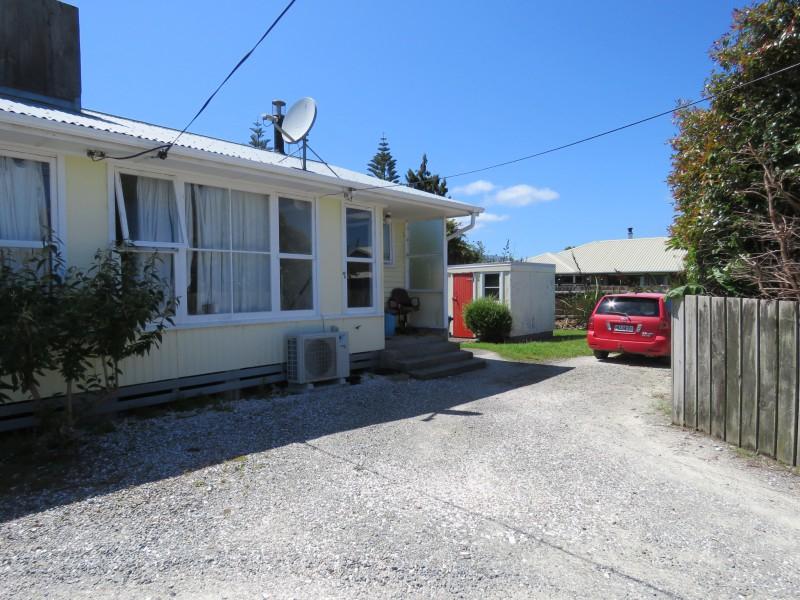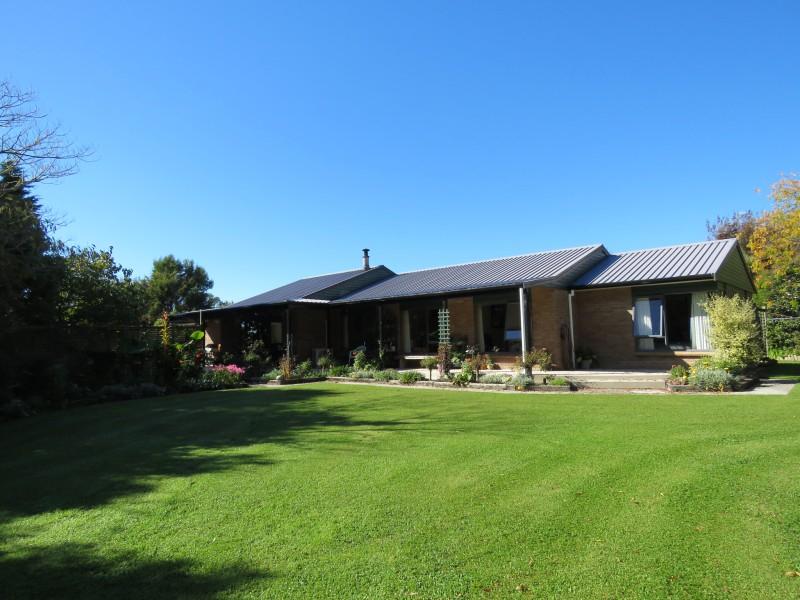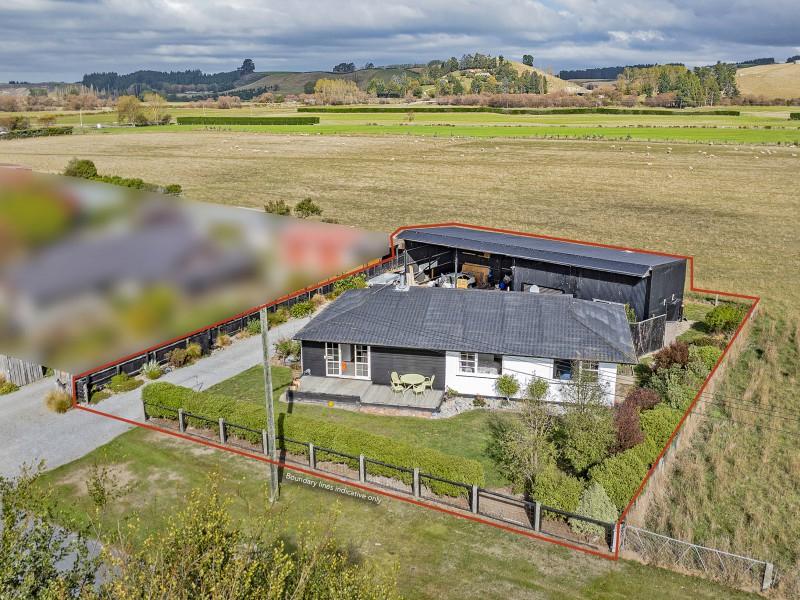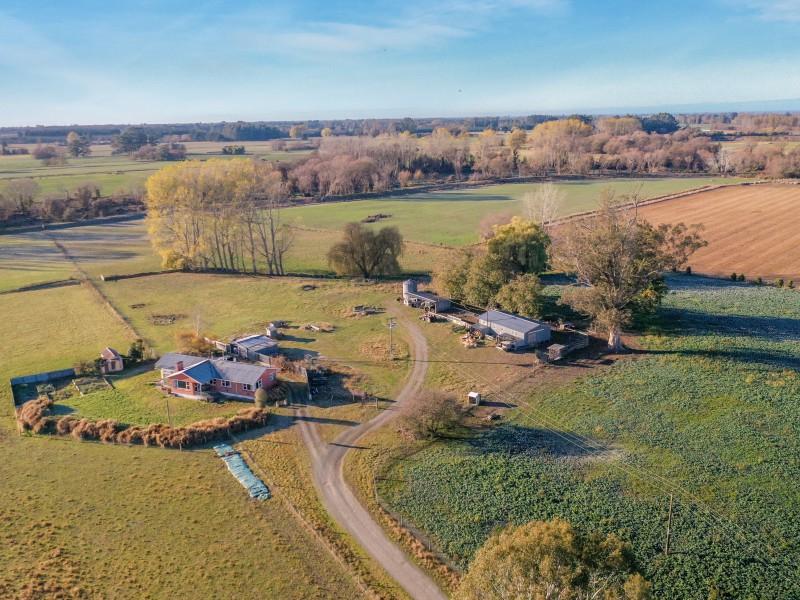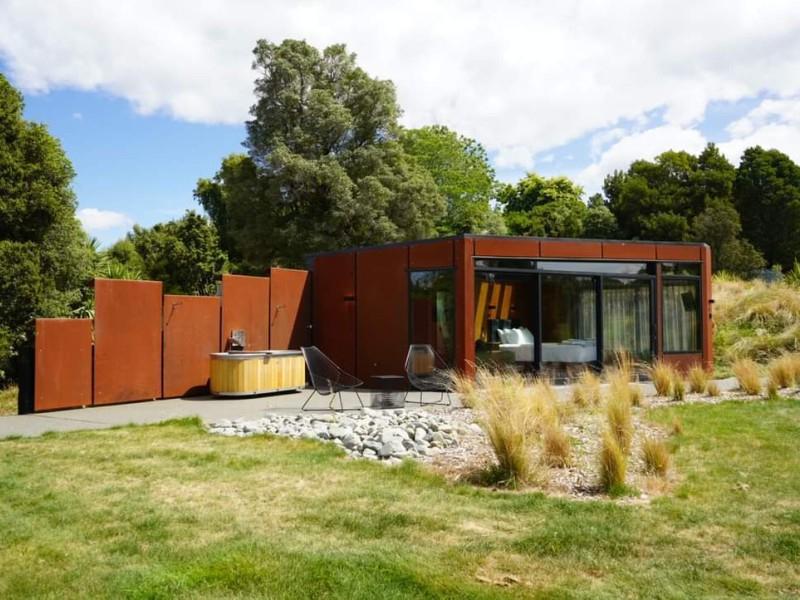Family bach owners allowed to remain on conservation land
By local democracy reporter Brendon McMahon:
Family baches on West Coast conservation land will be able to remain - for now - after fears they would be pushed out.
The win for the owners, who have in some cases owned the baches for generations, follows negotiations with the Department of Conservation (DOC).
In early 2023, the ongoing use of family baches on conservation land was deemed "a privilege, not a right" by the department.
The comment was made after fears were raised about the future tenure of West Coast baches on conservation land at a West Coast Conservation Board meeting.
Poerua River bach owner and Greymouth lawyer Colin Smith said on January 10 "a significant group" of West Coast bach owners, who mobilised in 2023, had reached a solution with the department.
It meant the concessions for bach owners would continue as they were, pending a review of the West Coast Conservation Management Strategy (CMS) in the next year.
"It's been a successful outcome for bach owners but it's only the first step in an ongoing process," Smith said.
The dialogue with DoC had been amicable and "successful", he said.
"It was more an issue of interpretation … We consider the submissions made on our behalf by our barrister helped clarify the relevant policies.
"We look forward to continue to working with the DoC in terms of this matter."
At a West Coast Conservation Board meeting in February, board members questioned a change by the department to the tenure of traditional family-owned baches, particularly in South Westland.
DOC Western South Island operations director Mark Davies denied undue pressure was being placed on bach owners.
However, he said a draft proposal "had been shared" with those affected as concessions were due for renewal.
Davies reiterated concessions for baches on conservation land was "a privilege, not a right".
At the time, Ngāi Tahu board representative and Harihari farmer Rob Wilson said the department should take a conciliatory approach to bach owners "instead of bullying", after agitated bach owners approached him.
Concerns included owners having to show occupancy for 100 days a year, and baches being made available to members of the public in the future under the new concession terms.
Smith estimated about 60 baches across the region are potentially affected going forward.
Many are on pockets of stewardship land or other historic reserve land handed over when DOC was formed in 1987 out of the former NZ Forest Service.
Typically the baches are in the lower reaches of rivers or streams near the coast and used seasonally for hunting or whitebaiting.
Smith said the issue was also a national one as it affected any holder of a concession for a bach on conservation land.
Smith said the West Coast group of bach owners foresaw a good working relationship with DOC going forward to ensure the traditional basis of tenure could continue.
"This is not an adversorial process … this is a case of trying to work with the DoC to find a resolution.
"We're not here to attack the department. We want to, and look forward, to working with the department."
As a result, the bach concession terms would remain the same for the foreseeable future.
"We have a review of the CMS coming up and we envisage we will need to ensure that the current terms relating to baches on conservation land under the current CMS continue under any new CMS document."
Davies said on January 15 "the reconsideration process" for three baches on public conservation land - one at the Waita River, one up the Arawhata River and the other at Kwitchatown - was completed in July 2023.
The department had relicensed the baches for a term of 10 years, he said.
Davies did not comment further on the broader tenure issue for other bach owners.
Local Democracy Reporting is local body journalism co-funded by RNZ and NZ On Air.
Share your most delicious (but affordable!) go-to meal...
Winter is knocking at the door and the cost of living has already made itself at home. So let's help each other out by sharing your meal ideas that don't break the bank.
Comment below with your go-to meals that are delicious and affordable.
Type 'Not For Print' if you wish your comments to be excluded from the Conversations column of your local paper.

Coast council LTP submissions ‘fairly low’
By local democracy reporter Brendon McMahon:
Just six of 25 submitters to the West Coast Regional Council 2024-34 long-term plan (LTP) will appear at a hearing in Greymouth on Tuesday.
The proposed 10 year plan proposes an average 27% general rates increase in 2024-25 to partly fund a proposed budget of $25.2 million for the next financial year.
The other option in year one - to increase general rates by 44% - was based on rates alone funding.
However the preferred option in the proposed LTP is to reduce the full annual budget impact on ratepayers in the first few years by borrowing.
Engagement in this LTP has been relatively low compared to the previous two LTP processes in the past seven years.
A report for Tuesday's hearing notes previous LTPs received "moderate to high" submissions.
The current 2021-31 LTP received 621 submissions while the previous LTP in 2018 saw 73 submissions.
"Compared to the 22,000 rating units on the Coast, it's a fairly low turnout," West Coast Regional Council chairperson Peter Haddock admitted on Monday.
But he believed the low submissions in 2024 was a positive reflection on what the current council had moved on in the past year.
"It shows clearly that people understand that there has been clear change at council for the better.
"No-one wants rates increased but I think that it shows that change was necessary.
"The council was in a pretty broken state and it needed money spent on it right across the board."
Haddock cited the council's less than fit IT system, and accounting system linked to the "rates error" late in 2023 as an example, aside from the governance upheaval.
He said the LTP strategy was to invest in staff and systems to ensure "a well oiled machine".
At the same time the regional council general rate, compared to the three district councils was "relatively low," he said.
People still needed to watch their targeted special rating district levies, above the general rates and uniform annual general charge.
Significantly the proposed LTP ushered in special rates for Westport residents (a 539% bump) for the first time to pay for the already budgeted share of their Government co-funded $22.9m flood resilience scheme.
Yet there was apparently little kickback on it, Haddock said.
"I think it shows that people accepted that they want that for the betterment for their community.
"It's unfortunate it does cost … let's not forget they are being subsidised."
Haddock compared the future benefit for Westport to that of the Greymouth Floodwall scheme via special rates for 30 years, "for the betterment of the town".
Under the proposed LTP "balancing the budget" and whether council should shoulder the Predator Free Te Kinga project were the two main consultation topics.
Ratepayers were also asked to comment on the LTP financial and infrastructure strategy, policies, and user fees and charges.
Comment was also sought feedback on the planned transfer to its ownership of the Grey District Council owned Greymouth Floodwall, and the Westland District Council-built Havill Wall protection bank at Franz Josef.
Under the first general rates increase option all properties in the Grey District will pay the following per $100,000 of capital value:
* General rate, a $14.70 increase from $50.26 to $64.96 in 2024-25,
* Emergency management levy increase from $10.17 to $4.58,
* The one district plan (Te Tai o Poutini Plan) decreases from $15.22 to $3.99 in 2024-25,
* The Uniform Annual General Charge in 2024-25 increases $36.31 to $192.59.
It means a Grey District dwelling worth $300,000 will see their total general rates bill increase to $443.70 in 2024-25.
This is made up of:
* General rate, $194.89
* Emergency management, $4.27
* Te Tai o Poutini Plan, $11.96
* Fixed UAG charge, $192.59
That excludes any special rating district levy, such as for the Greymouth Floodwall area.
$700,000 mistake left to fester at Coast council for three years
By local democracy reporter Brendon McMahon:
A billing mistake that saw a debt of just over $701,000 sit on the West Coast Regional Council books for three years should never happen again, according to the head of its finance committee.
Council this week congratulated itself on the recovery of long standing debt in the past few months, the ongoing rebuild of its finance management system, and a pending report back on four internal audits driving the rebuild.
However, Risk and Assurance Committee chairperson Frank Dooley (pictured) said the error made back in 2021, leaving a $701,718 debt on the council's books, still needed to be cleared up through the council's annual reporting.
Caused by a "clerical error", the debt was indicative of the council's previous dysfunction where a billing mistake was left to fester instead of being proactively followed up, he said.
"It was a double up in an invoice.
"You just don't follow up three years later," Dooley said.
A public outcry in late 2023 spurred a flurry of activity by council to sort out its rates and debt systems after some ratepayers were overcharged by up to 300% in the first installment for 2023-24.
It has already adopted a new system to chase up external debt and internal audit reviews are currently underway into:
* cash handling
* credit card and fuel card expenditure
* procurement (capital and operational)
* rates setting and charging processes.
Chief executive Darryl Lew said the findings should be reported directly to the committee by June.
He said it reflected "a significant body of work" with new actions out of it needing to align now with the 2024-34 long-term plan and a planned revision of council's committee structures, he said.
Councillor Peter Haddock said council's commitment to do a fix up had been quite a resource commitment when it was "running low".
But it was essential to rebuild the organisation.
Councillor Peter Ewen said that was significantly helped by changes at the top in the past year, with the chair replaced and a new chief executive.
"A lot of the progress that has come about is because we now have communication between the chair and the chief executive.
"It's made a hell of a difference," Ewen said.
On May 16, Dooley told LDR the $701,718 dated back to a claimant being invoiced twice and the amount then being carried over in council's debtors' ledger.
He said there had been no inquiry until recently about it when it became clear the amount was disputed.
The "mistake" had made a $700,000 impact on council's bottom line.
"The impact of that $700,000 reversal will probably be in the annual report."
Dooley said at this point he was unsure if that particular mistake could have been repeated.
"I don't really know but that's why you have to drill down debtors on a regular basis - that's when you pick it up.
"Errors have to be investigated and corrected, and that hasn't been happening," he said.
Council was now working with its auditors to build new systems including ensuring accurate rendering of rates debt.
"We're starting to drill down, asking are they accurate or not?
"I've got a lot of confidence now … we're putting in place the appropriate procedures and controls so we can manage this on a day to day basis and make it effective."
Dooley said part of the issue had been inadequate staff numbers - despite some question around an increase in staff at council.
"If you don't have those people doing the right job, it creates inefficiencies, and creates a massive cost to the ratepayers - every time we make a mistake it costs.
"I'm really pleased about the progress."

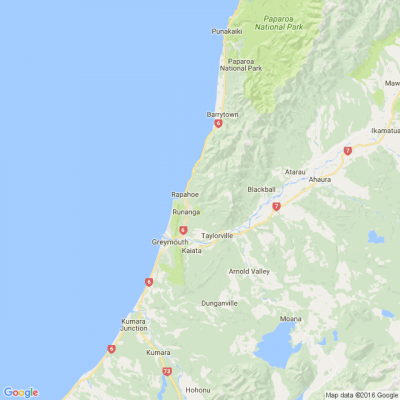
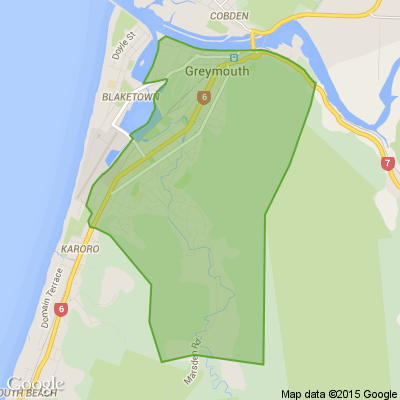





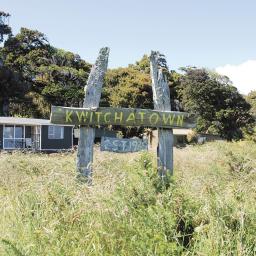


 Loading…
Loading…